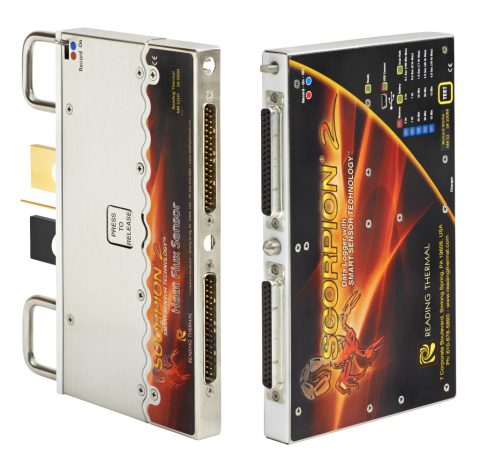For commercial bakeries, staying compliant with the requirements of the Food Safety Modernization Act (FSMA) is not only beneficial to your bottom line – it’s critical for protecting consumer safety. With an increasingly complex system in place, adhering to FSMA can be a daunting task and failure to do so can lead to costly fines or even closure of operations. In most cases, failing to achieve FSMA compliance in the baking industry comes down to a lack of understanding of your oven environments and the temperatures required to effectively bake products – which is why Reading Thermal’s oven profiling system is the ideal solution.
The Reading Thermal SCORPION® 2 Profiling System provides an accurate, reliable way to track your baking process and ensure it meets all FSMA requirements. By creating a complete profile of your oven environment, the system can identify areas where temperatures are too high or too low and make minute-by-minute adjustments to ensure that every product being baked is safe. It also allows you to create a detailed audit trail that can be used to show FSMA compliance if an inspection ever arises. Before anything else, however, you need to have the clearest understanding of your oven conditions, environment, and maintenance.
Best Steps to Achieve FSMA Compliance in Your Bakery
The SCORPION® 2 Profiling System will go a long way toward helping your bakery achieve FSMA compliance, providing the critical information you need to bake perfect, safe baked goods. However, while our tools are essential for improving your baking processes, there are many other steps you need to properly achieve FSMA compliance.
Develop Sanitation Programs
Establish a written program that outlines the procedures necessary to keep your bakery clean and sanitized. The program should include cleaning schedules, as well as instructions for proper use of chemicals and supplies. This will help ensure that all staff and equipment are following the correct procedures for sanitizing food contact surfaces.
Establish Monitoring and Re-Testing Processes
Your bakery should have processes in place to monitor the effectiveness of your sanitation programs. In addition, regular re-testing should be conducted to verify that the desired levels of safety are being maintained. By regularly monitoring and testing for contaminants, you can ensure that your baked goods are safe for consumption.
Train Employees on Food Safety Practices
Proper training is another key component of achieving FSMA compliance. All employees should be trained on the safety procedures that are in place at your bakery, and have a clear understanding of their role in ensuring food safety. This includes proper handling techniques to prevent contamination as well as what food-borne illnesses look like and how to report them if they occur.
Implement Temperature Controls
Temperature control is essential for food safety. Make sure that all of your ovens, refrigeration units, and other equipment are regularly monitored to ensure they are functioning properly and maintaining the correct temperatures.
Conduct Regular Audits
Regular audits are also important for ensuring FSMA compliance. Documented inspections should be conducted on a regular basis to ensure that all of the safety protocols and procedures are being followed correctly.
These are just a few of the steps you need to take to achieve FSMA compliance in the baking industry. By implementing these processes, as well as relying on our SCORPION® 2 Profiling System, you can feel confident that your customers are consuming safe, high-quality baked goods. If you’re interested in our services, call us at (610) 678-5890 Ext. 2, or contact us online for more details about our innovative products.

